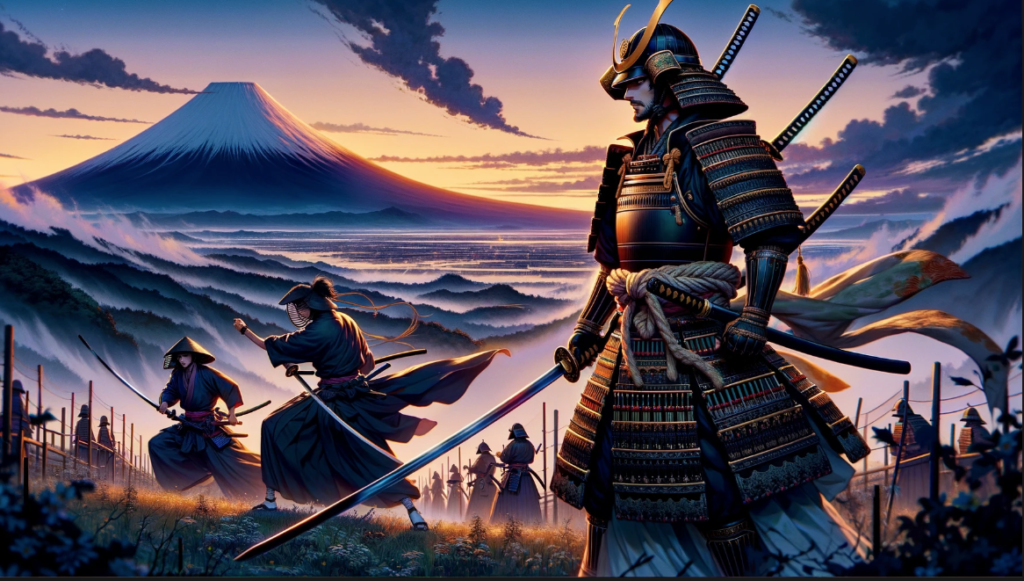
Lesson 2. Samurai
Topic Question: What is the historical background of the samurai?
No.1
First, try answering the question yourself. – The instructor will provide advice on vocabulary, grammar, and expression corrections.
Sample Answer – Let’s read aloud – The instructor will check your pronunciation and accent.
The samurai were the military nobility and officer caste of medieval and early-modern Japan. From the late 12th century, they became the highest-ranking social caste under the Japanese Emperor and the Shogunate. Originally, samurai were archers who fought on horseback, their role expanded over time to include leading battles and governing regions. They lived by the “Bushido” code, which emphasized virtues such as loyalty, honor, and discipline. The era of the samurai effectively ended during the Meiji Restoration in the late 19th century when the samurai class was abolished in favor of a modern, conscripted army. However, the legacy and influence of samurai culture continue to be felt in Japan and around the world.
No.2
5 Words to Learn and Their Meanings – Pronounce the Words Correctly (Pronunciation Training) + Make Sentences Using the Words Instantly
- Nobility (貴族): The group of people belonging to the noble class in a country, especially those with a hereditary or honorary title.
In medieval Europe, the nobility owned vast amounts of land and had significant political power.
- Archers (弓兵): People who use a bow and arrows.
The archers took their positions on the castle walls as the enemy approached.
3. Bushido (武士道): The code of honor and morals developed by the Japanese samurai.
Bushido influenced the samurai’s conduct in both warfare and in peacetime.
4. Meiji Restoration (明治維新): The period in the late 19th century when Japan underwent rapid modernization and industrialization.
The Meiji Restoration transformed Japan from a feudal society into a world power.
5. Legacy (遺産): Something left or handed down by a predecessor.
The legacy of ancient civilizations can be seen in their art, laws, and structures.
No.3
Key Expressions and Example Sentences – Pronounce the Example Sentences of Key Expressions Correctly (Pronunciation Training) + Make Sentences Using the Key Expressions Instantly
- Military nobility (軍事貴族)
The military nobility played a crucial role in the governance and defense of the realm. - Leading battles (戦いを導く)
Famous generals from history are celebrated for leading battles that changed the course of their nations. - Abolished (廃止される)
The practice was eventually abolished after widespread criticism and calls for reform.
No.4
Discussion and Exchange of Opinions on the Sample Answer
Instructor: How do you think the values of Bushido have influenced modern Japanese society? Are there aspects of samurai culture that are still relevant today?
Student: [Opinions of students]
No.5
Free Discussion on the topic
Let’s explore how the image of the samurai has been romanticized in films and literature. Do you think these portrayals accurately reflect historical reality? How do samurai movies or books impact your perception of Japanese culture?






